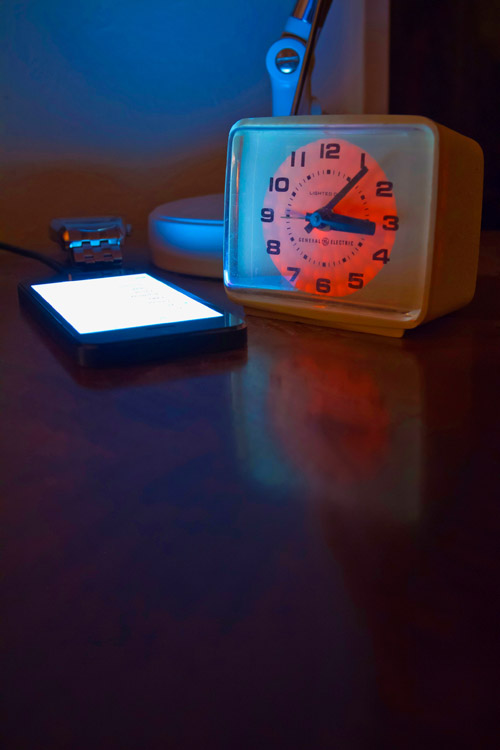BY AMY MILSHTEIN
To prevent burnout, companies are banning email and after-hours communications. But is the 24-hour workday here to stay?
 BY AMY MILSHSTEIN
BY AMY MILSHSTEIN
Back in the early ’90s, I had an editor who loved to leave “midnight memos” on everybody’s desk. We knew these missives were written in the wee hours because our boss included the time he wrote them alongside the date — often in bold. If the hour were particularly ungodly, it would be bolded, underscored and followed by a series of exclamation points. We got the message: The boss works late and we don’t. And yes, we felt a smidge guilty about it, but mostly we felt sad for him. Poor guy, he must really hate going home.
Turns out my old boss was ahead of his time. Today the reality of smartphones, laptops and email means that no one ever has to disconnect from work. And we don’t. Executives, managers and professionals who use smartphones work a whopping 13.5 hours every workday, adding up to 72 hours per week including weekend work, according to a white paper published last year by the Center for Creative Leadership, a North Carolina-based provider of executive education. Add in 7.5 hours for sleep and that leaves people three hours a day for discretionary activities like seeing their families, exercising or showering.
That scenario was all too real for Annette Campista, vice president at Umpqua Bank’s Tanasbourne store. Before Umpqua, she worked at a “major financial institution where we were expected to be tethered to our devices at all times,” she remembers. The results were predictable. “People were burning out one after another. My old boss left to become a personal trainer.”
The same was true for Betse Green. She found herself glued to her smartphone at all hours when she was a senior recruiter at Laika. It often seemed she was working enough for two people. Turns out she was. After she left, she was replaced by two new hires. “Staying connected 24 hours a day was an enabling behavior,” says Green.
Jennifer J. Deal, author of the Creative Leadership report, supports that notion. She found that constant emailing is often a cover for bad management and leadership, allowing companies to mask poor processes, indecision, dysfunctional cultures and subpar infrastructure because they know everyone will pick up the slack. Today Green is a contractor for Nike, where she needs special permission to work over 40 hours a week: She loves the flexibility that her smartphone offers but is careful not to fall into old behaviors. “I’m focused on working smarter,” she reports.
Campista goes one step further: She eschews smartphones and laptops, all with Umpqua’s blessing. The company allows employees to opt out of connecting their devices to the company network. That doesn’t mean she doesn’t work long hours; a normal day is eight to six, and some days go longer to catch up on email, but when she’s done for the day, she’s done. “I know my personality, and if I had a smartphone, I would be checking it all the time.”
Limiting emails to prevent burnout appears to be an international trend. In France about 200,000 to 250,000 high- tech and consulting workers are allowed to disconnect after working 13-hour days. And in Germany, Daimler, Volkswagen and Deutsche Telekom have limited employees’ access to email on vacation or after work hours.
Will Oregonians see similar limitations any time in the future? It depends. “I’m noticing some individual managers institute after-hours policies but not whole companies,” says Jean Roque, president and owner of Portland-based Trupp HR. Still, Roque feels that the recession has created a new norm where workloads are heavier and expectations are higher. Combine that with the reality of a global economy in which clients and vendors exist in multiple time zones, and it seems like constant connectivity is here to stay.
At least until workers implode. Remember when smartphones were new? That dopamine jolt with each incoming buzz and ping made us feel important, vital and irreplaceable. Now it just makes us weary. “We know that employees can tolerate higher levels of stress and workloads for a limited time,” says Roque. “But if it’s constant, it will affect engagement and, ultimately, the success of the organization.” Sounds like unplugging could be a win-win for us all. But whether we can overcome our communications addiction remains to be seen.
As for my old boss, well, we’ve lost touch over the years. A quick search reveals he’s not on Facebook, LinkedIn or Twitter. I guess he learned to unplug after all.


